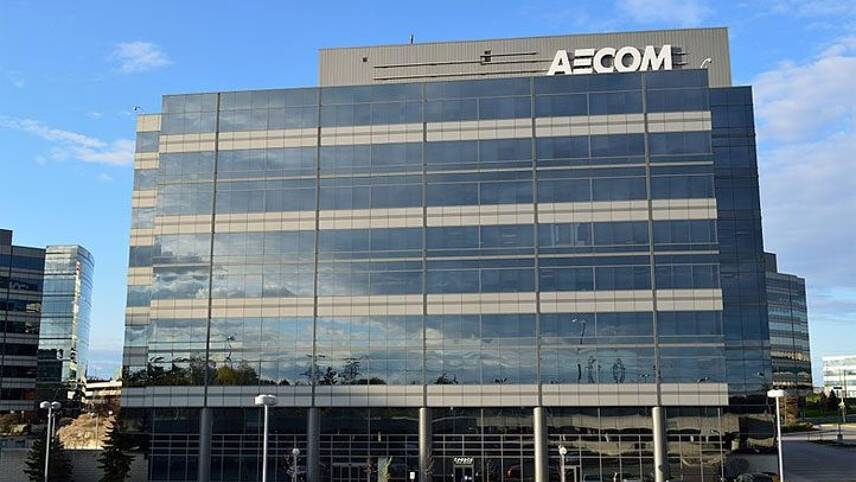Register for free and continue reading
Join our growing army of changemakers and get unlimited access to our premium content

Pictured: The AECOM offices in Markham
The climate commitments detailed in the new strategy, called ‘Sustainable Legacies’, build on AECOM’s membership to Amazon’s Climate Pledge and its work in co-founding the Pledge to Zero for the environmental consulting sector.
They include a commitment to reach net-zero operations by the end of 2021, building on previous in-house reductions and scaling up nature-based offsetting schemes. AECOM will then, in the longer term, strive for a net-zero value chain by 2030 and develop 1.5C-aligned science-based targets to ensure that reductions are delivered in line with climate science across all scopes.
AECOM has not yet published numerical estimates for science-based targets. However, it has outlined several key focus areas for decarbonization. Operationally, the firm will work to switch to an electric fleet and to source renewable electricity, while also mandating a 50% reduction in business travel against 2019 levels.
To tackle embedded and in-use carbon from projects, which accounts for a significant proportion of Scope 3 (indirect) emissions, AECOM has introduced a new accounting method to track and reduce life-cycle carbon. It will use the tool, called ScopeXO, to support the supply chain to halve the carbon impact of all projects this decade. Clients will also receive net-zero targets alongside targets on resilience and social value.
ESG pillars
Net-zero is one of the four pillars making up AECOM’s new strategy. The other pillars cover sustainable development and resilience; improved social outcomes and diversity; and enhanced governance.
Client targets account for the major part of the sustainable development and resilience pillar. AECOM’s president Lara Poloni said the firm’s clients “have new, evolving priorities focused on sustainability and delivering social impact through their projects and services”.
Under the ‘social outcomes’ pillar, AECOM is striving to ensure that women account for 20% of senior leadership and at least 35% of the overall workforce this year. It also includes commitments to ensure that all projects are more accessible and inclusive, maximising positive outcomes for the communities in which they are based.
The pillar relating to enhanced governance, meanwhile, commits AECOM to auditing ESG targets and metrics every year, to ensure they are in line with best practice. The board of directors will also receive more frequent reports from the firm’s safety, risk and sustainability committee.
In the wake of Covid-19, ESG is becoming a key talking point in the business sustainability space – both in terms of finance and in terms of reframing roles and reporting previously badged as ‘sustainability, ‘responsibility’ or ‘CSR’.
To the former, sustainability bond issuance reached a record high in 2020, according to Moody’s. Issuance increases were more pronounced for bonds relating to societal outcomes than to those with a climate or nature focus.
To the latter, some businesses are appointing chief value officers and others are creating their first ESG-specific roles, including Kao Corporation and Kraft Heinz.
Sarah George


Please login or Register to leave a comment.